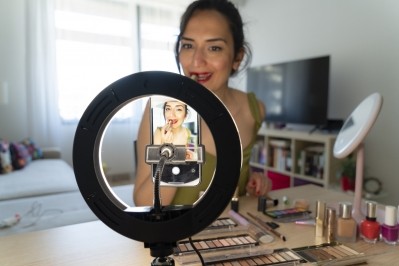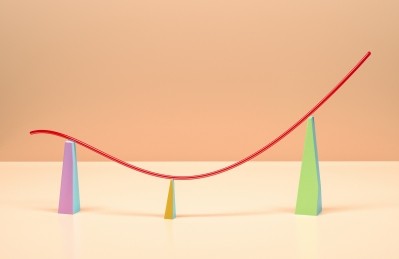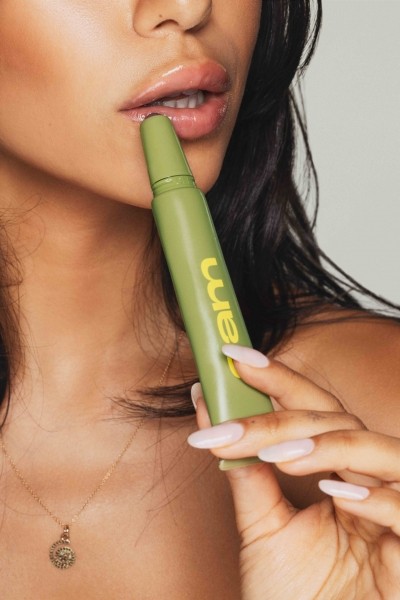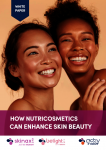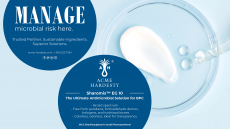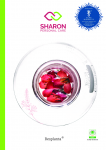Trend Watch: BeautyStreams exec on psycare opportunity in US beauty market

A new report from global beauty industry expert trend platform BeautyStreams defines the ‘psycare’ trend as a “movement representing a transformative wave in the beauty industry, foregrounding mental health and holistic well-being.”
This emerging beauty category combines the benefits of mental or psychological wellness with personal care products that provide a positive experience that can “enhance their well-being, improve their psychological health, address stress, and quiet a racing mind,” said Eleonora Mazzilli, Trend Localization & Business Development Director, North America at BeautyStreams.
We interviewed Mazzilli for her insights into the psycare trend in the US beauty market, including the current state of the trend’s rising popularity with US consumers, its potential impact on cosmetics and personal care product manufacturers and suppliers, and innovations driving its growth and expansion throughout the beauty industry.
CDU: What is the psycare trend in beauty?
Elenora Mazzilli (EM): At BeautyStreams, we have identified psycare as an emerging beauty category that takes into consideration the psychological well-being of the individual. It can be expressed in different categories from Skin Care and Personal Care (including sexual wellness), through Hair Care, Home and Body Fragrance, Supplements, and even Color Cosmetics.
Today, in an unprecedented context of political tensions, recession, wars, and climate emergency, pathologies linked to stress and sleep disorders are on the rise, thus this topic has never been more relevant. Today's consumers seek above all finding pleasure and reassurance.
An awareness of psychological and emotional states is becoming ever-more woven into the beauty category. Indeed, with life today having been described as a state of perma-crisis, it’s no surprise that consumers are feeling burnt out.
As one response, consumers are seeking out beauty and personal care that offers an experience that’s more profound and goes beyond the aesthetic, amplifying the effects of the time that they spend on themselves. They’re interested in beauty products and routines that can enhance their well-being, improve their psychological health, address stress, and quiet a racing mind.
CDU: What does the psycare trend currently look like in the United States?
EM: The link between the mind and skin is becoming more recognized and more closely examined by psycho-dermatologists. There’s ample evidence pointing to the link between skin, stress, and mental health.
An increasing number of US beauty and wellness brands like Osea or Selfmade are harnessing the skin-mind connection by offering consumers products that while relieving stressed-out skin, can be combined with rituals that promote calmness, relaxation, and inner peace. In the US, meditation and mindfulness for improved well-being is on the rise amidst today’s fast-paced, highly stressed lifestyles.
Consumers are now finding resilience and regaining a sense of calm via a range of mindfulness practices supported by beauty and well-being products. Better mindfulness is becoming more accessible thanks to a range of new offerings such as guided meditation practices, meditation devices, VR meditation games, meditation wearables, and meditation-focused apps like Respekt, a Beauty Meditation app launched by San Francisco-based company of the same name.
Alongside this, emerging superfood drinks like the ones from US brand Blossom, holistic skin care, and crystal-charged beauty offerings also promote a sense of mindfulness. In the US, functional and wellness fragrances are emerging as a form of therapy.
A new generation of functional, well-being, and therapy fragrances like the ones from The Nue Co., CandaScent Labs, or Linné are popping up on the American market, claiming to offer a range of wellness benefits from influencing the psyche, promoting inner balance, enhancing mental performance, supporting health to boosting one’s mood and energy, promoting calmness, grounding, and reassurance, as well as reducing stress and anxiety.
In the US, psychedelic-adjacent products are becoming a burgeoning category in wellness. The wellness industry is betting on legal psychedelic-adjacent products that promise physical, mental, and spiritual benefits. Beauty and wellness brands like A.P. CHEM, Marley One, or Psychedelic Water are offering topicals, tinctures, drinks, and supplements that employ ingredients such as functional mushrooms, nootropics, l-theanine, Mucuna pruriens, and GABA, among others, that possess healing, relaxing, immuno-defense-improving, and mood boosting properties.
CDU: What impact does the psycare trend have on manufacturers and suppliers to the cosmetics and personal care product industries in the United States?
EM: Wellness and the desire for a healthy lifestyle are now non-negotiables for consumers, who realize that beauty requires a comprehensive management of their health and understand the importance of reconnecting with themselves to improve well-being. It is now better understood that skin health is intrinsically linked to one’s overall wellness.
Gut health, sleep hygiene, mental fortitude, and physical fitness are all components that have an impact on skin health. Adopting a global, multidimensional, inside-and-out skin health and wellness approach is gaining momentum on the US beauty market.
Viewing the consumer’s skin, body, and mind as a whole, US brands are exploring the tenets of Traditional Chinese Medicine, Ayurvedic healing, shamanism, and spirituality to offer skin care rituals inspired by these traditions. In addition, wellness-first and functional foods and beverages are expanding rapidly, to promote a better connection between the rhythms of the body, emotions, and mind.
While wellness fragrances are still an emerging market, research, science, and technology advancements are creating new opportunities for brands to design functional fragrances that bring attention to the link between olfaction, well-being, and mood stimulation. Fragrance houses like IFF are investing in cutting-edge neuroscientific research, functional magnetic resonance imaging (fMRI) technology, artificial intelligence, and big data to see how fragrance impacts the human brain, thereby backing fragrance development with scientific proof to develop specific aromas and compounds that enhance brain function, mental health, and overall well-being.
CDU: What innovations are driving the US psycare trend?
EM: We are seeing that brain health, as the new wellness frontier, is capturing the attention of several US beauty and wellness brands. Aging, lack of sleep, overwork, digital fatigue, chronic stress, and demanding lifestyles are among the factors leading to people feeling that their brains are depleted, in turn creating an unprecedented surge in cognitive care needs.
According to cognitive research, accelerated brain aging can lead to a variety of health issues, including a rise in mental health disorders, impaired mental functions, and a heightened risk of neurodegenerative conditions. The recent COVID-19 pandemic has led to elevated levels of loneliness and social isolation, which also lead to physical and mental health struggles.
This phenomenon means that brain health and wellness are now a major concern across generations, not just in older adults. Today, there is rising awareness that better mental health starts with better brain health, and that the brain, just like any other part of the body, needs to be exercised and cared for.
Brain health has become the newest well-being frontier, and products and tools that enhance brain performance and cognitive function, while supporting mental health, are now coming into the spotlight. From brain-training apps to brain-boosting supplements to mental-health tracking devices, the brain care category is gaining a foothold on the US wellness market.
As big tech players including Meta, Snap, Microsoft, and Apple all invest in AI, VR, and AR technologies, the future could see a rise in brain-tracking devices and wearables, brain sensors, and brain-computer interfaces that enable the early diagnosis and personalized treatment of cognitive decline.
CDU: As we move into 2024, what potential impact will the psycare trend have on the US beauty industry?
EM: With the perma-crisis in mind, we can expect consumers to increasingly look for ways to lift their mood and manage their emotions. Considering the current opioid crisis and the rising consumption of legal recreational drugs, especially in the US, a rising wave of anxiety and stress is foreseeable in years to come.
With a rising number of US cities and states easing legislations around psilocybin, also known as “magic mushrooms,” micro-dosing may be poised to become the new well-being movement. It is a territory to watch in the beauty and supplement categories.
In November 2020, Oregon became the first US state to decriminalize psilocybin followed by Colorado, while cities like Santa Cruz, Oakland, and San Francisco have taken similar measures, passing votes to decriminalize the use of the substance. This has since been followed by calls from activists in other US cities including Washington DC, and New York City to follow suit.
According to recent studies, the repeated use of small quantities of psilocybin can improve mood and mental health. Researchers found that people who micro-dosed on psilocybin saw “small- to medium-sized” improvements in symptoms of depression, anxiety, and stress over a 30-day follow-up, compared to those who did not.
Micro-dosing, especially with psilocybin, boasts promising benefits, and may be poised to become a new territory for beauty and wellbeing categories.
